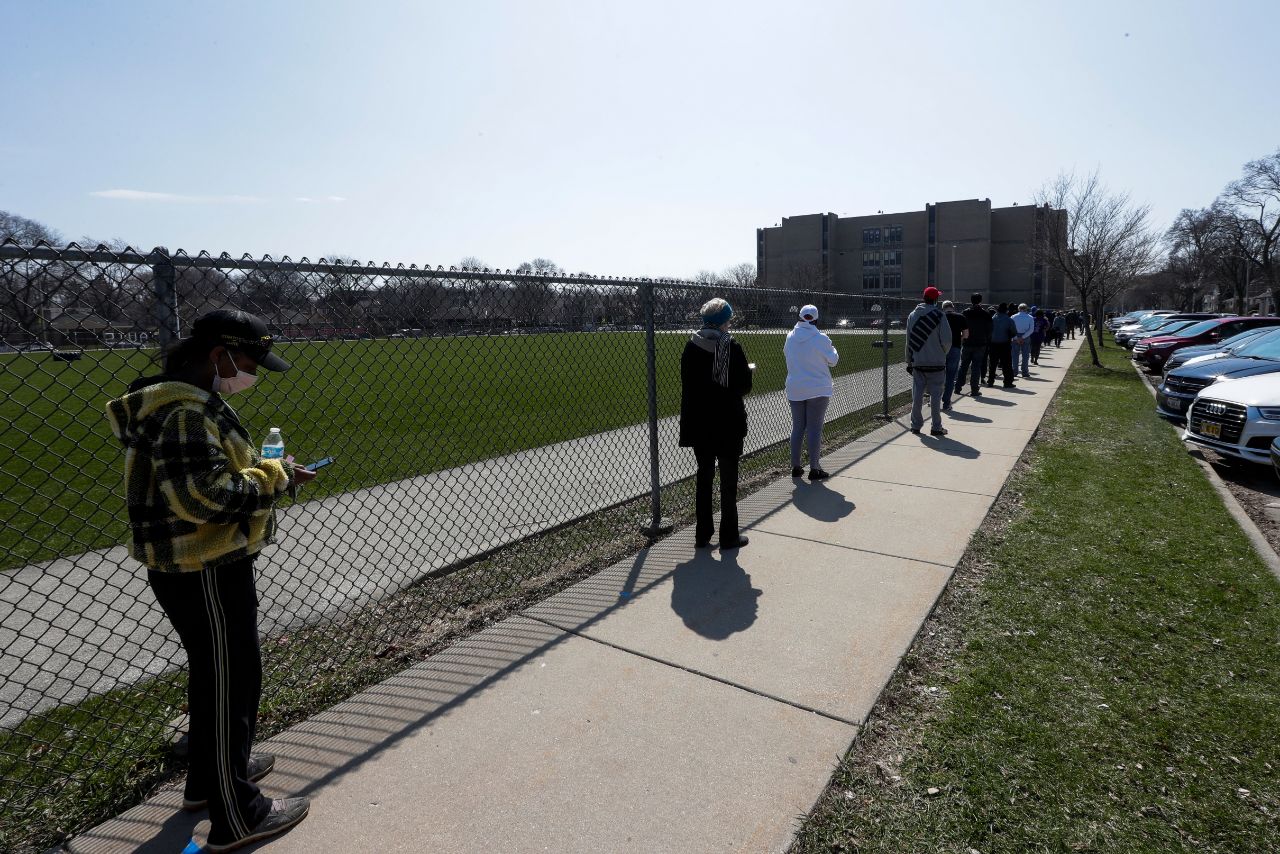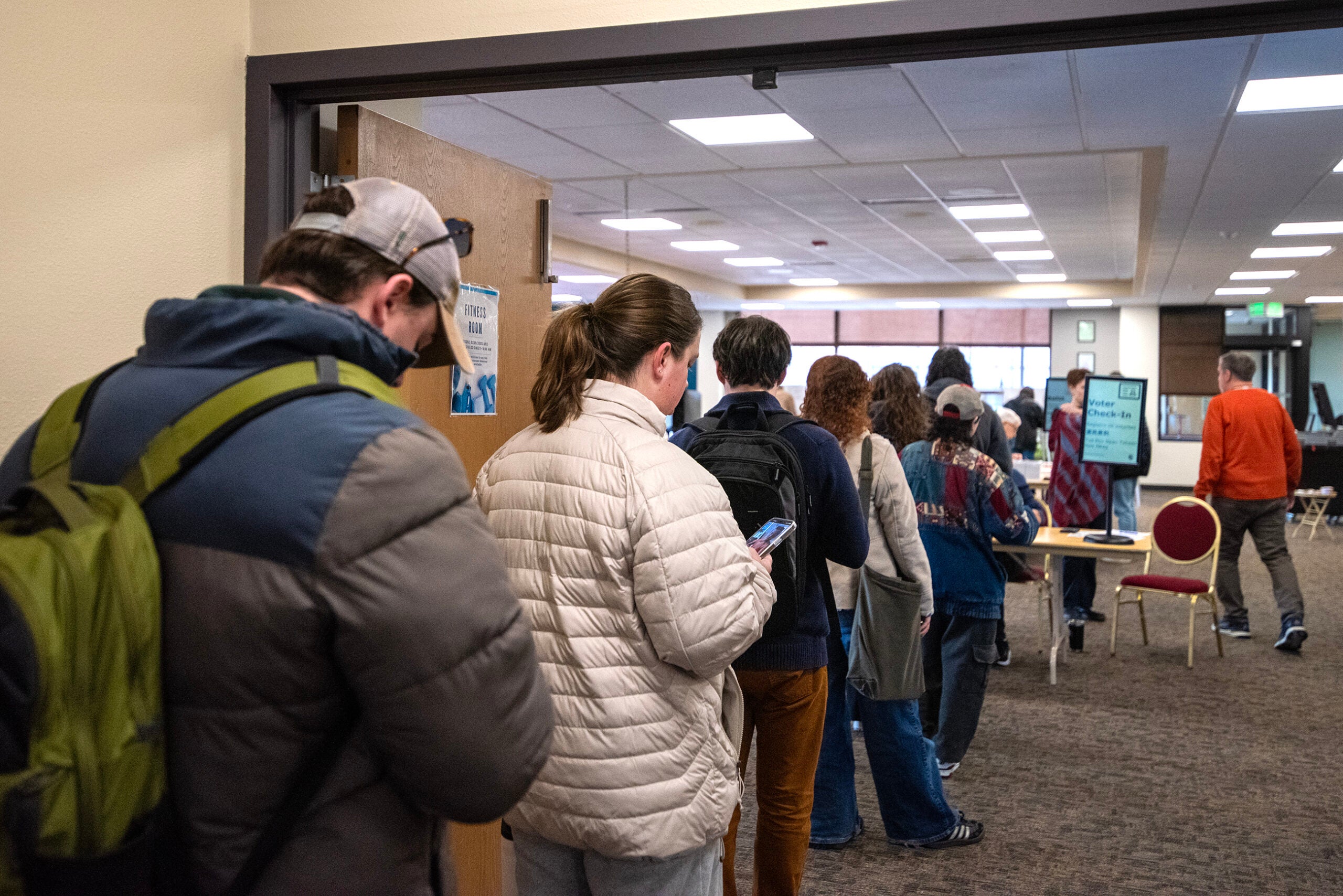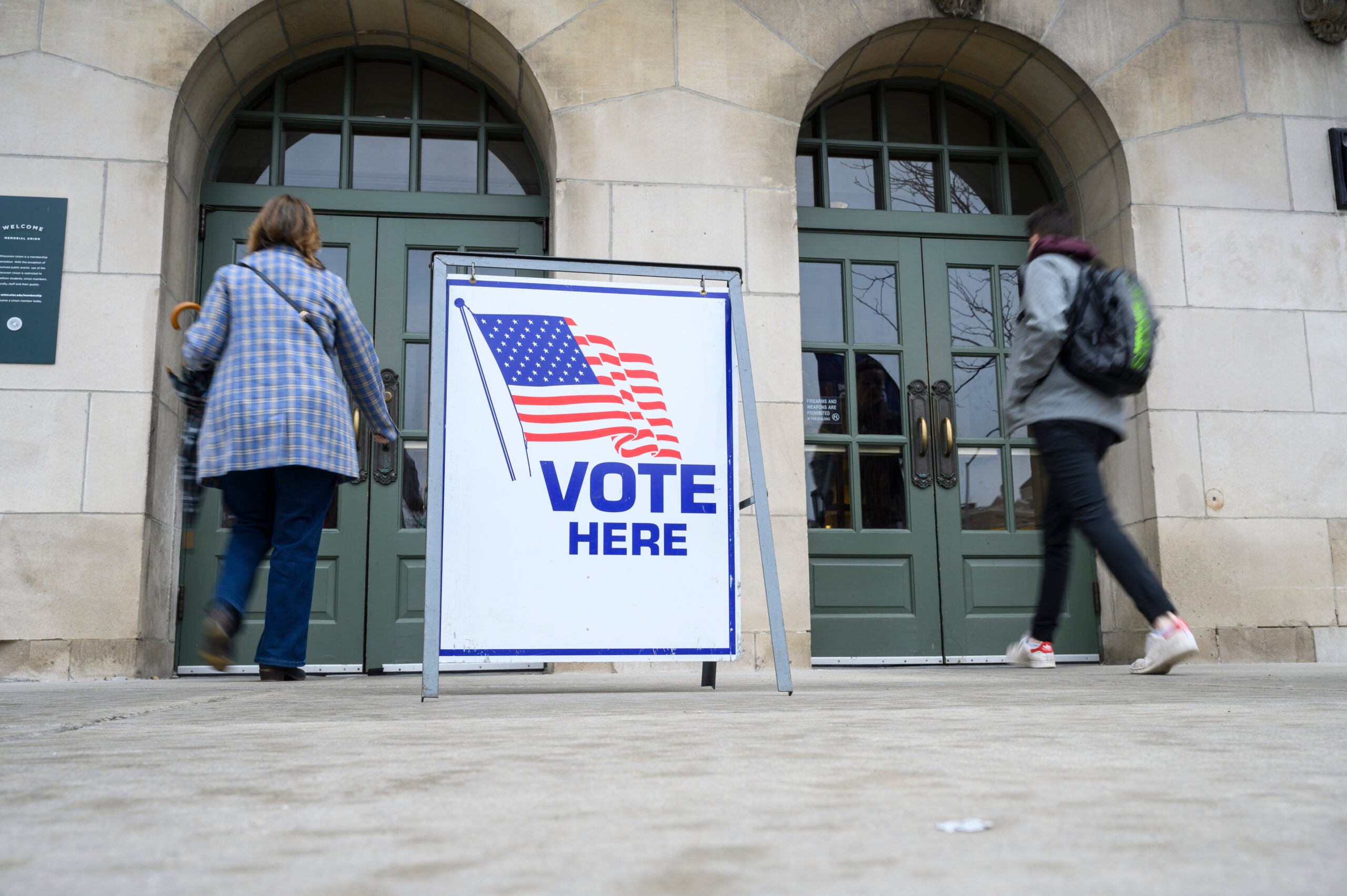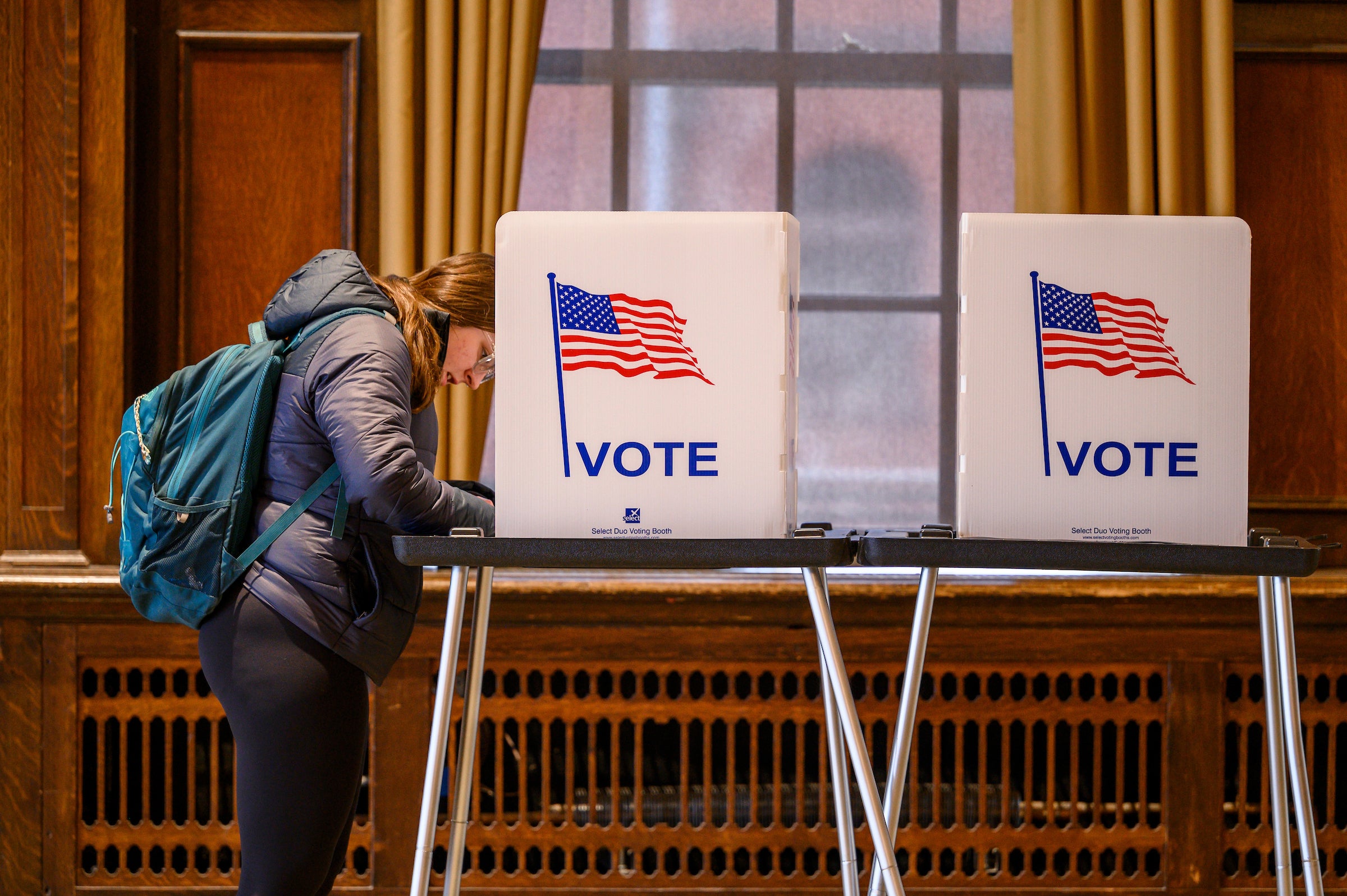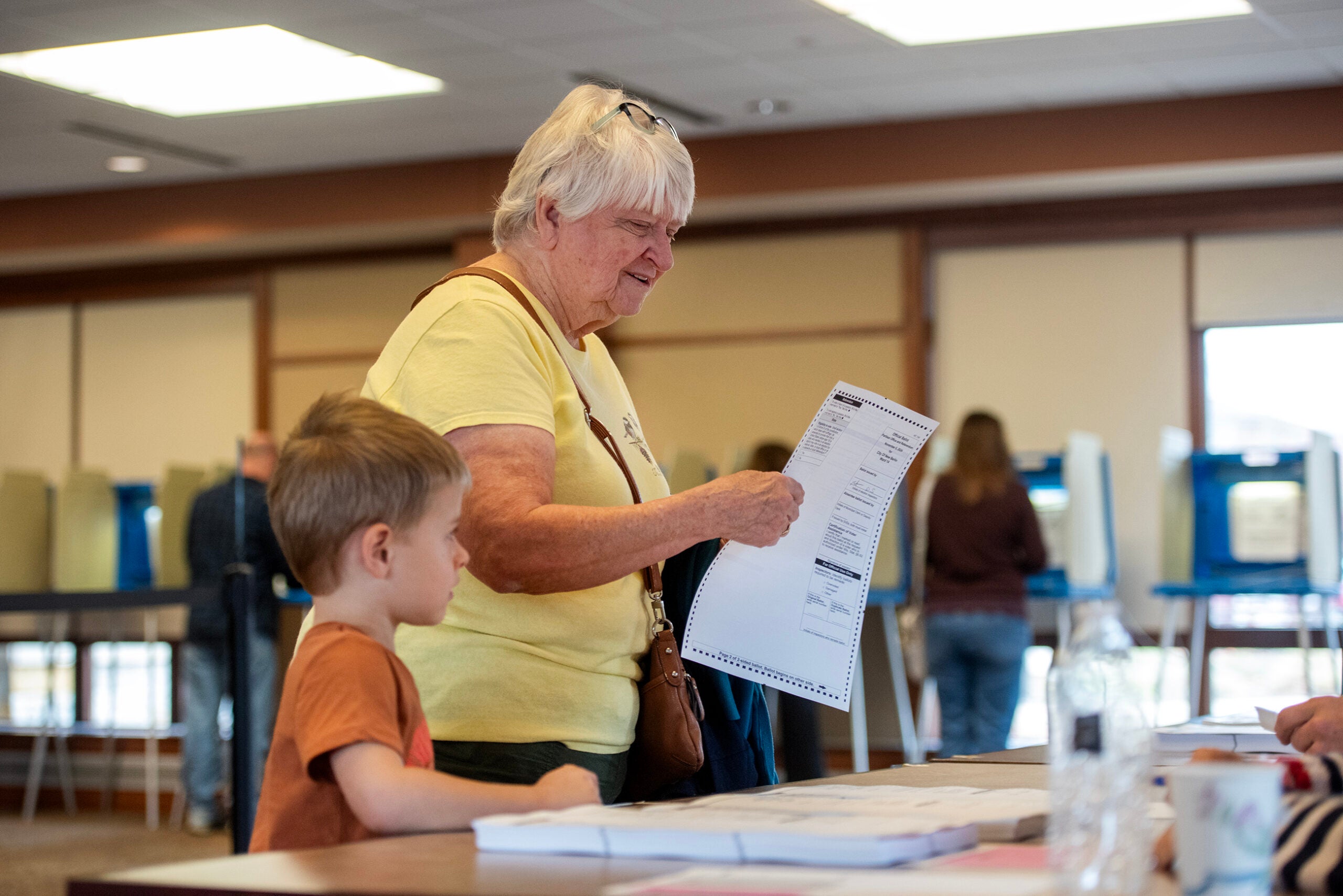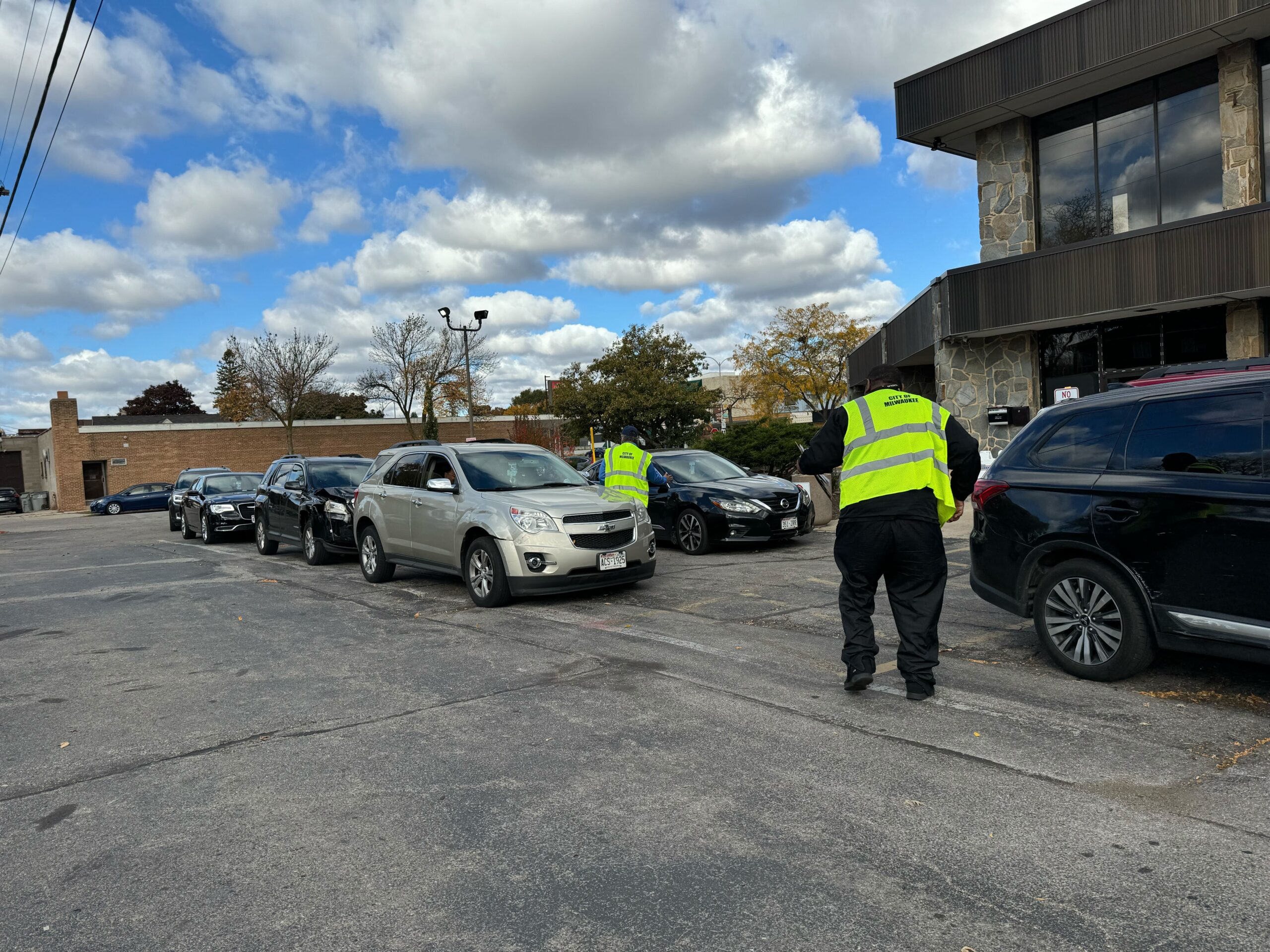While polls officially closed at 8 p.m. across the state in Wisconsin’s spring election, which was carried out in the midst of the ongoing COVID-19 pandemic, voters remained in line Tuesday night waiting to cast their ballots.
That included hundreds still queued up in Milwaukee.
The city’s Election Commission told voters as long as they were in line by 8 p.m. they could vote — but many people were in for a long night. With only five of the city’s 180 polling locations open, the sites had lines stretching around buildings and onto city streets throughout the day.
Stay informed on the latest news
Sign up for WPR’s email newsletter.
Most voters waited between one and two hours.
Ann and Greg Van Dunk walked to Riverside High School around noon to vote, but when they saw the line was at least two hours long, they left. They returned around 6 p.m. and still had to wait two hours.
The couple believes voter turnout is high because people are upset about the way the election has been handled.
“Everyone is saying, ‘Dammit, I’m coming out, I’m going to make my voice known,’” Ann Van Dunk said. “We haven’t been to a grocery store in two weeks, we’ve been working from home, but this was that important to us.”
On Monday, Gov. Tony Evers attempted to push back the election until June with an emergency order, but the Republican-controlled state Legislature immediately made an appeal to the state Supreme Court, which ruled 4-2 to strike the order down in just a matter of hours. GOP lawmakers opposed delaying the election, saying it would leave vacancies in important local offices across the state.
Dana Neiswander waited more than two hours to vote Tuesday night at Riverside on Milwaukee’s east side. She said she thinks people were galvanized by the chaos surrounding the election.
“I know I work for a nonprofit and we had tons of emails going around today encouraging us to support the community,” Neiswander said. “So, I think people are pretty charged up and realize how important this is. But it’s getting cold and I’ve seen a lot of people start to leave the line.”
The ballots included the Democratic presidential primary, a state Supreme Court race and a proposed amendment to the state constitution. There were also thousands of local offices on ballots across Wisconsin, including county executives, county board seats, and mayors. Long-time Milwaukee Mayor Tom Barrett faced a challenge for the office from state Sen. Lena Taylor, D-Milwaukee.
There were more polling places open in communities with less than one-tenth the population of Milwaukee’s. But on Tuesday, Milwaukee Election Commission Director Neil Albrecht said he had made the right decision.
Albrecht said he felt comfortable opening five polling places given the high number of COVID-19 cases in Milwaukee. As of Tuesday afternoon, Milwaukee County had 1,387 cases.
About half of the voters wore face masks and many kept to social distancing rules. Poll workers, who were brought in from the National Guard, wore full personal protective equipment.
During a press conference, Albrecht said after voting himself in the city of Milwaukee, he felt less worried that voters were at a high risk of contracting COVID-19.
“I truly could not have been more impressed by the safety precautions taken at these voting centers today,” Albrecht said. “And I am 100-percent confident that you are safer than if you go into a grocery store when you appear to vote at one of these voting centers today.”
Many of the voters at the polls Tuesday said they requested absentee ballots but never received them.
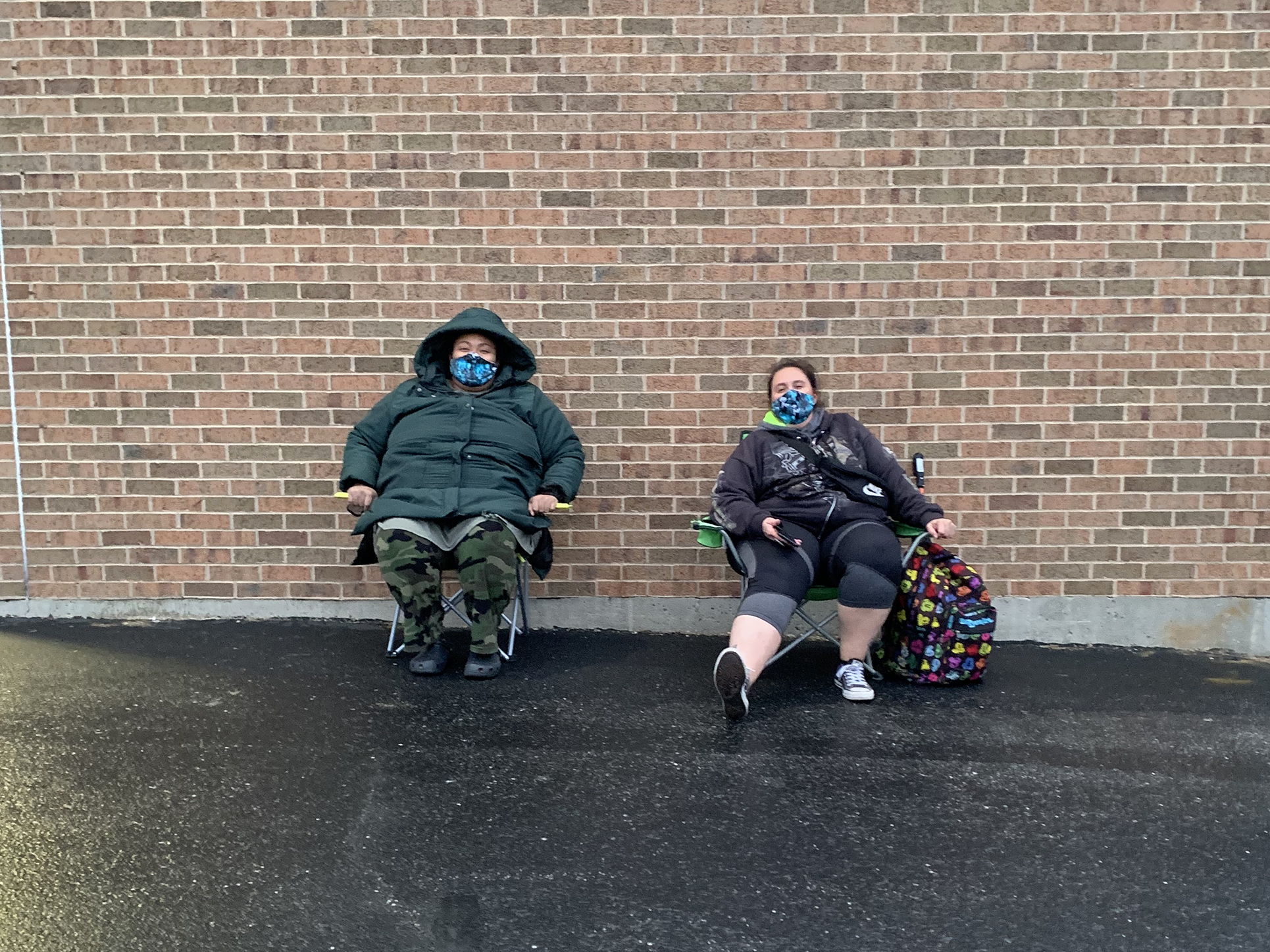
Meanwhile, some voters in Green Bay said they waited more than four hours to cast their ballots. The city opened two polling sites Tuesday — it usually operates more than 30 on election days — citing safety concerns and a shortage of poll workers.
Mark O’Dell said he went to his regular polling place but found a sign on the door directing him to vote at Green Bay West High School. When he got to the school, he was surprised to see the line wrapped around the building, he said. At 7:30 p.m., he was still near the end of the line, but he said he’d stay as long as it took to cast his vote.
“Since I started, I might as well finish,” he said. “That’s the kind of person I am, if I start something I’m going to finish it. Especially a long journey.”
Spirits were generally high among voters at Green Bay West, even as 8 p.m. approached. O’Dell chatted with Jake Sylvester, who was in line ahead of him. Sylvester compared the camaraderie among voters to being at a Green Bay Packers game. When it comes to voting, the stakes are high, he said.
“You can’t complain about the people that are elected if you don’t get out here and vote,” he said.
Sylvester said politicians shouldn’t have waited until the day before the election to decide whether it would take place.
Tim Mertens, who was also in line at Green Bay West, didn’t think in-person voting should have been happening at all.
“This is a pandemic,” he said. “They’re asking for people to get sick or die or be critically ill. They can hold this off.”
Mertens said the absentee ballot he requested didn’t arrive in time for Tuesday’s election and voting was too important to miss.
Lines weren’t quite as long at Green Bay East High School, but even some who arrived there before 8 a.m. Tuesday said they waited more than an hour and a half to vote.
Thanks in part to social distancing, the line stretched from the school’s entrance, around its parking lot and along its athletic fields Tuesday morning. After weeks of quarantining, some of those waiting said they were just happy to spend time outside on a warm day.
But the long line posed a challenge for others. Mary Lou Miller, who is in her 80s, thought she and her husband might have to wait about 15 minutes to vote, she said. Her husband has a hard time standing. After she saw the length of the line, she decided to take him home and come back later, she said.
“I don’t live that far away, it’s no biggie, and I really do want to vote,” Miller said.
Green Bay Mayor Eric Genrich was an outspoken proponent of postponing the election due to the new coronavirus. Last month, the City of Green Bay and its clerk sued the Wisconsin Elections Commission and the Evers administration in an effort to delay voting.
“We’re in the position of asking people to choose either their health or their right to vote and in our opinion that’s unjust, it’s unlawful, it’s unsafe,” Genrich said last month.
Editor’s note: Alana Watson contributed to this report.
Wisconsin Public Radio, © Copyright 2025, Board of Regents of the University of Wisconsin System and Wisconsin Educational Communications Board.
